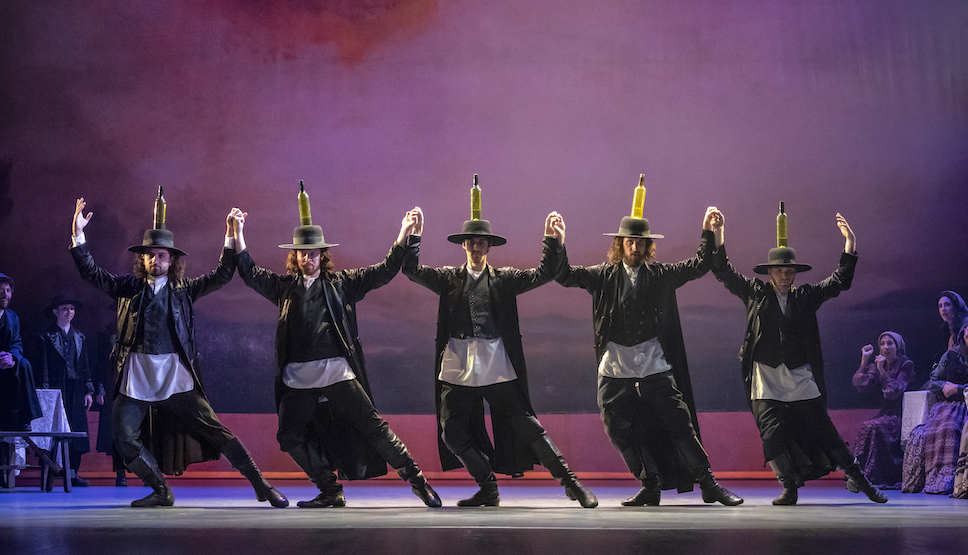Fiddler on the Roof is set in early-20th-Century Imperial Russia and first appeared on Broadway in 1964, but it seethes with relevance today. Anti-Semitism is on the rise and Russia once again seeks to impose its will on the region. At the end of the show, the cast dedicates the performance to the people of Ukraine.
The musical centres on the poor Jewish milkman, Tevye, who is trying to balance his traditions and faith with a rapidly changing world. His three eldest daughters press him to let them choose their own husbands, bypassing the village matchmaker and defying his wishes. The first is in love with the impoverished tailor, the second with a radical student from Kyiv and the third, worst of all from Tevye’s point of view, with a Gentile.
At the same time, pogroms against Jews are coming ever closer to the little village of Anatevka. The Russian constable warns Tevye that there is going to be a “little unofficial demonstration” and violently breaks up his eldest daughter’s wedding. Eventually, the Tzar orders all Jews to be expelled from the region, and the villagers scatter to Poland, America and elsewhere.
Fiddler on the Roof won Tony Awards for best musical, score, direction and choreography when it opened in 1964 and spawned the popular, Norman Jewison-directed movie of the same name in 1971. The music is laden with ear worms, the choreography is energetic and the story’s dark undertones are leavened with joy, love and humour, as the characters navigate the precariousness of their lives while seeking to make something meaningful of them.
Fiddler on the Roof runs at the Northern Alberta Jubilee Auditorium through January 8.
